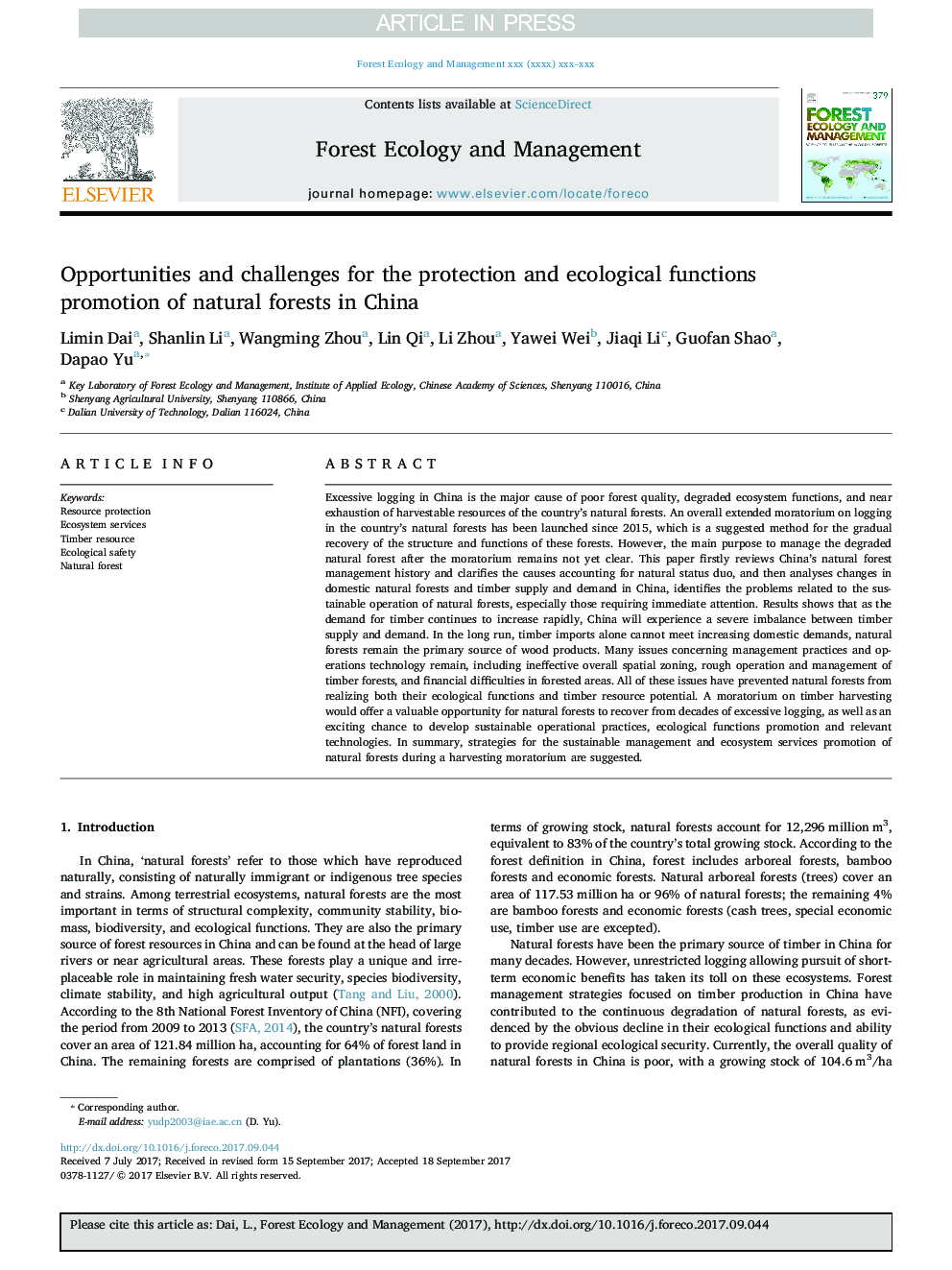| Article ID | Journal | Published Year | Pages | File Type |
|---|---|---|---|---|
| 6541842 | Forest Ecology and Management | 2018 | 6 Pages |
Abstract
Excessive logging in China is the major cause of poor forest quality, degraded ecosystem functions, and near exhaustion of harvestable resources of the country's natural forests. An overall extended moratorium on logging in the country's natural forests has been launched since 2015, which is a suggested method for the gradual recovery of the structure and functions of these forests. However, the main purpose to manage the degraded natural forest after the moratorium remains not yet clear. This paper firstly reviews China's natural forest management history and clarifies the causes accounting for natural status duo, and then analyses changes in domestic natural forests and timber supply and demand in China, identifies the problems related to the sustainable operation of natural forests, especially those requiring immediate attention. Results shows that as the demand for timber continues to increase rapidly, China will experience a severe imbalance between timber supply and demand. In the long run, timber imports alone cannot meet increasing domestic demands, natural forests remain the primary source of wood products. Many issues concerning management practices and operations technology remain, including ineffective overall spatial zoning, rough operation and management of timber forests, and financial difficulties in forested areas. All of these issues have prevented natural forests from realizing both their ecological functions and timber resource potential. A moratorium on timber harvesting would offer a valuable opportunity for natural forests to recover from decades of excessive logging, as well as an exciting chance to develop sustainable operational practices, ecological functions promotion and relevant technologies. In summary, strategies for the sustainable management and ecosystem services promotion of natural forests during a harvesting moratorium are suggested.
Related Topics
Life Sciences
Agricultural and Biological Sciences
Ecology, Evolution, Behavior and Systematics
Authors
Limin Dai, Shanlin Li, Wangming Zhou, Lin Qi, Li Zhou, Yawei Wei, Jiaqi Li, Guofan Shao, Dapao Yu,
